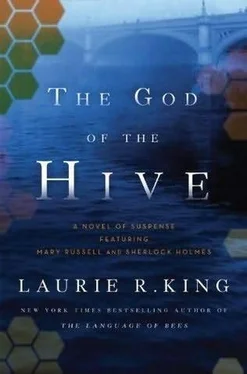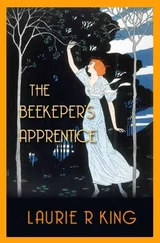It was at about this time that a rumour of an unattached ambulance driver had begun to circulate along the Front, when one of the many trench newspapers had a small piece about the so-called Angel of Albert, who rescued wounded men when all seemed lost. In fact, an officer new to Craiglockhart two weeks ago happened to tell me of the Angel, so it would appear that the mythic tale is still active .
In any event, “Goodman” was eventually arrested, and he and his stolen ambulance returned up the line to the British forces. Upon closer enquiry, he was identified as the long-missing Captain Moreton. Men have been shot for less, even officers. However, during his time as a driver, for the British and particularly for the French, he had performed admirably, including an heroic rescue of several French officers and soldiers. During his court martial, three high-ranking French officials and one from the British forces spoke for leniency. (I understand that, since then, Goodman-Moreton has been given a medal by the French government.)
Under these circumstances, his court martial chose to attribute his desertion and subsequent crimes to shell shock, and he was sent to Craiglockhart .
When he arrived, although until the previous month he had been performing efficiently as a driver, he was unresponsive and physically incapable, prey to uncontrollable tremors, and with a severe stammer that rendered speech nearly incomprehensible. (It should be noted that many of the officers arrive here with stammers, which can be interpreted as the body’s rebellion against giving orders, or the result of shattered nerves. In either case, treatment is the same: rest, and talk.)
By the end of March, he had improved to the extent that he could walk and feed himself without mishap, and speech was slow but comprehensible .
However, we had found that to address him by his proper name led to a state of quivering incapacity characterised by uncontrollable but silent weeping. In a staff meeting two weeks after his arrival, it was decided that he would not be so addressed until such time as it seemed therapeutically desirable. I informed him of the decision, and asked him by what name he wished to be called .
He replied with the name of the driver, Robert Goodman, and although the choice is a telling combination of strength (particularly here in Scotland) and virtue (“good man”), here is not the place to go into an analysis .
Under this nom de fou, his progress continued. His stammer became less pronounced except under periods of tiredness or particular stress (such as a visit by his older brother at the end of March). His manual dexterity improved to the point that he could control buttons, table implements, and a pen, and he undertook short visits into the town. In mid-April, however, an attempt to reintroduce his name stimulated an attack of nerves that set him back for days .
With improved speech, talk therapy became more effective. After some weeks, Goodman revealed to me that a wartime incident with a child had sent him south into the French lines; however, he was unwilling to give further details concerning the incident. Questions made him weep .
By early June, it was our judgement that he was ready for his medical board. It should be noted that it is not the task of this hospital to “cure” a man, but either to ready him for a return to duty, or to speak for his inability to perform his duties and thus require discharge. In the case of “Robert Goodman,” his lasting opinion appears to be that “the Other” (i.e., Moreton) had dropped the world into a state of war in the first place, and he, Goodman, wished nothing to do with the man. I do not believe he meant this literally-that his individual family was in some way personally responsible for the War-but that the country’s ingrained system of aristocracy and privilege had made for a situation in which war was the only option .
If this officer is permitted to retain his identity of “Robert Goodman,” I believe he can eventually become a functioning member of society. He has no wish to resume his place in his birth family or in his regiment, and I would strongly recommend that he not be forced into doing so. He has an abhorrence of violence that would make the duties of a front-line officer impossible. He is more than willing to serve as an ambulance driver, although he understands how unlikely that would be .
If the board certifies that he is to return to duty, my strong recommendation is that he be permitted quietly to enter the ranks rather than resume his status of officer: The responsibility of giving orders is what he fears most, to the extent that the friendships he has made here, amongst patients or the community, are men who are dominant to the point of bullying. Were he to resume his rank and his command, it would not surprise me to hear that he arranged to do himself harm .
The changes evinced in this patient’s life are profound and, to all appearances, permanent. His family (I find myself tempted to write, “his former family”) describes Moreton as methodical, tidy, and of a scientific bent; however, as Goodman he embraces spontaneity, spends his time with drawing pencils and clay (or knives and wood, once he was permitted them), and appears ill at ease when confronted by symmetrical array: A ready chess set, for example, gives him a mental itch until he has shifted a piece into an unlikely position. He sings, as apparently he has not done since adolescence, in a light but pleasant voice. He prefers simple songs and nursery rhymes over more complex melodies or hymns .
If the Board is taken aback by the seemingly light-hearted attitude of “Robert Goodman” when he comes before it, I beg that they keep in mind his twenty-seven months of unflinching service on the Front followed by two months of heroic driving to the rescue of his fellows (“The Angel of Albert”). If I may be permitted an anthropological remark beyond the scope of this patient report, I might point out that a society often reacts to trauma by turning its collective back on responsibility and embracing the frivolous. It should be no surprise that an individual might choose the same means of self-preservation .
I recommend a medical discharge for the patient, and until such time as his family becomes available to him again, a full pension .
As a last note, I recommend that the Board be made aware of the distress that will ensue if they choose to address the patient by his birth name .
Respectfully ,
W.H.R. Rivers
The file also included seventeen newspaper clippings concerning the trial of “Johnny” McAlpin in Edinburgh, during which accusations were made concerning the history and mental stability of Moreton, who had met McAlpin in a pub near Craiglockhart Hospital during April and May of 1917. No charges were filed against Moreton, and he was thanked by the judge and permitted to return to his home in Cumbria.
Robert Goodman had only been to two funerals in his life. As The Other Man, no doubt he had attended any number, in calm green cemeteries or in the filth and shattering chaos of the battlefield, but that was The Other Man and he, Goodman, didn’t have to think about that.
So he was mildly curious about this one. It would not be in a small village church as the other two had been, both of them for neighbours who had reached the ends of their long lives and been ushered into the grave with as much relief as sorrow. This one would be for a man who had, he gathered, still been strong and hale, and whose sudden death had been a terrible shock for everyone who knew him.
Читать дальше












